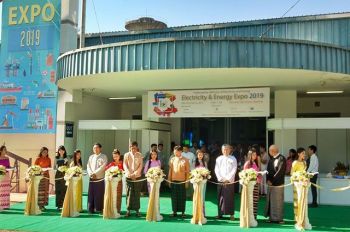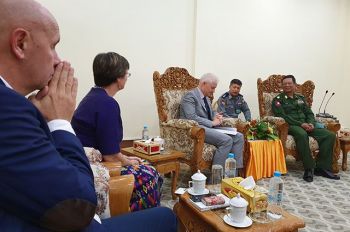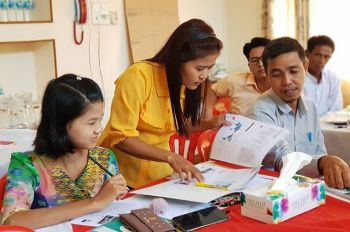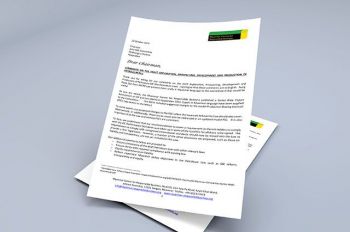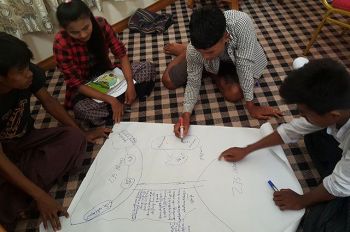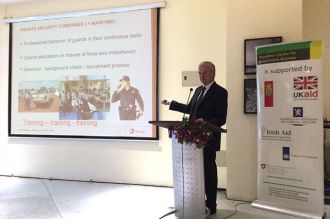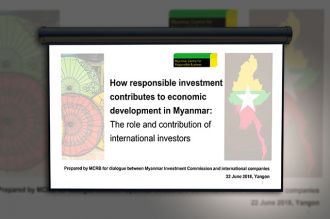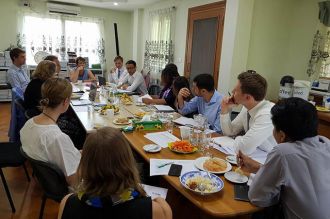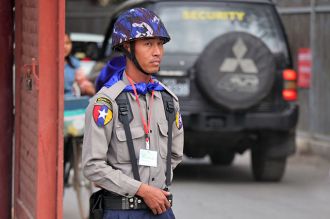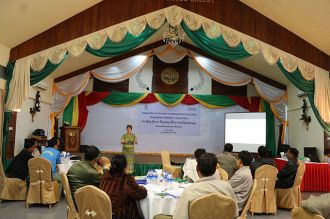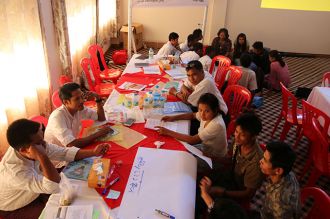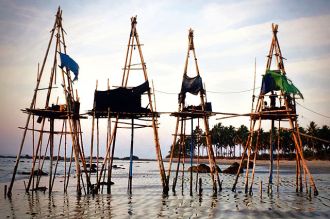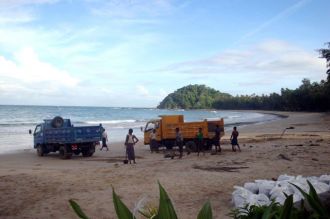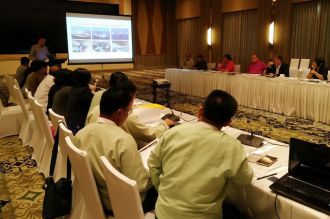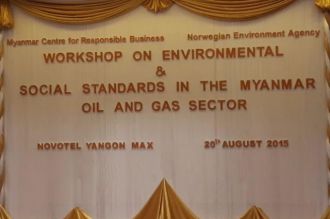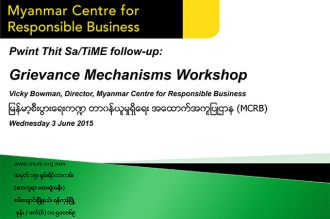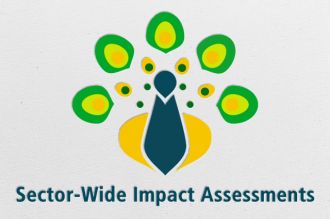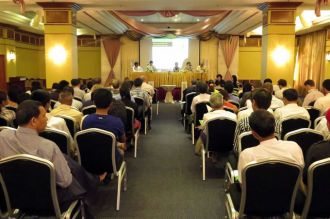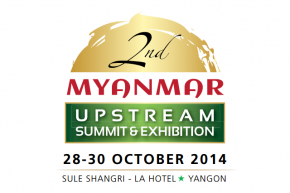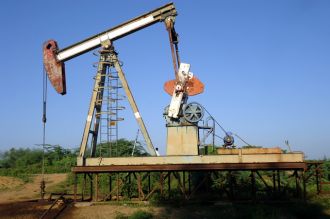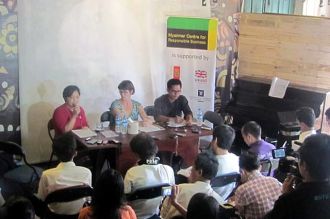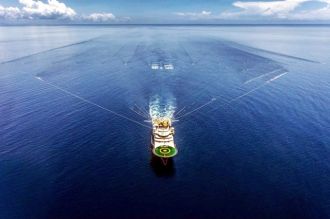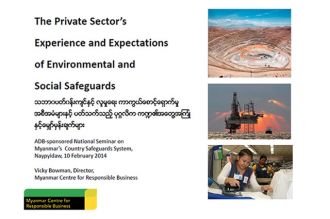Oil & Gas Sector

The Oil and Gas Sector Wide Impact Assessment (SWIA) was the first SWIA undertaken by MCRB, with guidance from IHRB. A SWIA is a forward-looking assessment that aims to contribute to preventing and minimising the sector’s negative impacts as well as strengthening and improving the sector’s positive impacts. Field research took place in late 2013 and early 2014 in sites on the China/Myanmar oil and gas pipelines, in oil fields in central Myanmar, and in the area around the pipelines exporting offshore gas to Thailand in Tanintharyi Region from TOTAL/Petronas and PTTEP’s joint ventures. After consultation, the SWIA was published in September 2014.
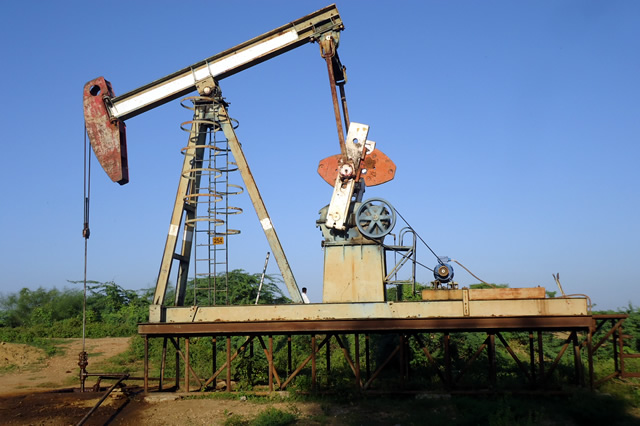
The Oil and Gas SWIA was intended to support responsible business practices in this growing sector of Myanmar’s economy at a time when tenders for onshore and offshore oil and gas licences had brought large and small international companies into Myanmar, and provided the basis for MCRB’s guidance to companies in the sector.
Myanmar’s legal framework for environmental and social impact assessment was nascent, and sectoral laws were outdated or non-existent. Most legal obligations placed on companies in relation to managing their adverse impacts were contained in unpublished production-sharing contracts (PSC).
The SWIA was an opportunity to set out the legal and policy framework and analyse where it had gaps or was inconsistent with international standards including the UN Guiding Principles on Business and Human Rights. It also served to kickstart individual environmental and social impact assessments (ESIA) by companies who had won licences, and their service providers.
The SWIA findings and recommendations to the Myanmar government, companies, civil society, home country/development partners and investors were incorporated into advocacy. This included advice to development partners such as Norway (also an MCRB donor) who was supporting the emergence of regulation related to oil and gas, and ESIA, as well as the IFC, ADB and others. An Annex to the SWIA proposed changes to the model PSC to strengthen environmental, social and human rights requirements.
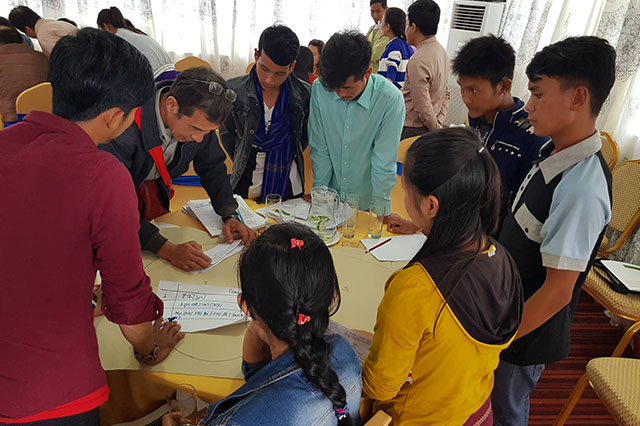
MCRB particularly focussed on advocacy related to public participation in ESIA processes. Findings were also incorporated into advocacy on the draft Petroleum Bill, the regulation of artisanal oil production, and well as reform of land laws, including land acquisition and resettlement.
The SWIA also took place at a time when the Union Solidarity and Development Party (USDP) Government led by President U Thein Sein was seeking to engage with international initiatives such as the Extractives Industries Transparency Initiative (EITI). Although Myanmar’s membership of EITI was ended in 2024, licence data from reports published between 2016 and 2020 is mapped here.
MCRB participated in discussions relating to EITI, and in 2014 published a briefing paper on CSOs and extractive industries in Myanmar to support meaningful engagement between companies and CSOs within the oil, gas and mining sector. MCRB translated the guide to operational grievance mechanisms (OGMs) published by IPIECA, the global oil and gas association focussed on environmental social standards. In training on effective grievance mechanisms, MCRB referred to a local good practice example developed by MPRL in the Mann Oil Field.
The Oil and Gas SWIA also identified a role in Myanmar for international initiatives and standards such as the Voluntary Principles on Security and Human Rights. In 2018, an In-country Working group on the Voluntary Principles was established with MCRB as Secretariat. This resulted in collective action and dialogue on issues such as responses to interactions between offshore migrant/refugee vessels and seismic vessels and rigs, as well as dialogue on possible emerging regulation of private security companies which ultimately led to MCRB’s 2022 Baseline Assessment of Private Security Companies, which drew heavily on the work of ICoCA, the responsible security association, of which MCRB became a civil society member.
Drawing on the SWIA findings international standards, and follow-up multistakeholder discussions an Oil and Gas Sector Briefing Note was prepared as a supplement to MCRB’s series of 2018 publications on Biodiversity, Business and Human Rights.
The Conflict Chapter of the SWIA noted importance of more effective ‘benefits sharing’ for Rakhine. Given the concentration of existing and new investment expected in Kyaukphyu in Rakhine State, not only from offshore gas, but also the terminus of the pipelines, and the site of a planned deep-sea port and special economic zone (SEZ) as well as several power plants, MCRB convened several civil society and multistakeholder discussions in the area during the period 2017 to 2019.
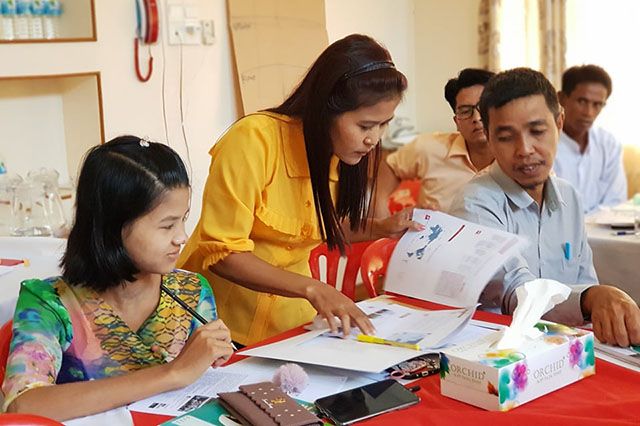
This included facilitating discussions between Woodside, Posco and local civil society organisations in October 2019. MCRB also sought to raise understanding of local government officials about responsible business, with the aim of improving coordination and sub-national regulation. These activities were also the subject of a briefing in 2017 to the Rakhine Advisory Commission led by Kofi Annan.
In June 2018, several oil and gas companies (TOTAL, Chevron, Woodside, ENI, Shell) participated in a meeting with Myanmar Investment Commission facilitated by MCRB to highlight the role of government in protecting human rights, including those of the Rohingya. These companies (other than Shell which had by then withdrawn) also were signatories to the MCRB-facilitated Statement by Concerned Businesses Operating in Myanmar in February 2021 following the military coup.
Following the coup, most remaining oil and gas companies suspended their plans for exploration and possible investment. TOTAL, Chevron and Petronas withdrew from Myanmar over the following two years. MCRB’s activity in the sector, including on the VPSHR, ended in February 2022. The most significant remaining company, PTTEP of Thailand, which took over TOTAL’s operations, had consistently declined to participate in MCRB activities, avoiding engagement in the original SWIA and showing no interest in the Voluntary Principles Working Group.
Information about MCRB’s activity in the Oil and Gas sector during the period 2013-2024
Virtual Roundtable Discussion with CSOs on Extractives and Inclusive Business
On 26 November 2020, MCRB held its first virtual roundtable discussion series with Civil Society Organizations on “Extractives and Inclusive Business”.
Companies Need To Do Advocacy On Draft Regulations To Ensure They Can Be Complied With
On 29 November, Vicky Bowman gave a presentation in the conference programme accompanying the Electricity and Energy Expo 2019 in Yangon.
Members of the Myanmar VPSHR Steering Committee meet the Deputy Home Minister
On 22 Nov 2019, members of the Myanmar In-Country Steering Committee on the Voluntary Principles for Security and Human Rights (VPSHR) made an introductory call on the Myanmar Deputy Minister of Home Affairs.
Rakhine State and Kyaukphyu Communities Want Companies and Government to Coordinate and Consult With Them on Community Development Programmes
MCRB held a Dialogue on offshore gas in Myanmar at Hotel Kyaukphyu to discuss how to build company-community ‘Partnerships for Development’ and how best to ensure that the eople of Rakhine State will benefit from offshore gas development in Myanmar.
MCRB submits comments on draft Petroleum Bill
At the invitation of the Joint Bill Committee which is currently considering the draft Petroleum Bill, MCRB has submitted comments to Parliament which draw on the findings of the 2014 Oil and Gas Sector Wide Impact Assessment.
Workshop for Kyaukphyu communities on EIA and public participation
MCRB, in partnership with Scholar Institute held a training on Responsible Business and the role of Environmental Impact Assessments (EIAs) in Kyaukphyu on 29 August.
Awareness-Raising Workshops Held in Yangon and Naypyidaw on the Voluntary Principles on Security and Human Rights (VPSHR)
Following on from the recommendations of the Scoping Report and the decision of the 18 May Myanmar Steering Committee of the VPSHR, two half-day awareness-raising workshops about the VPSHR and how they could be useful for Myanmar were held in Naypyidaw.
Meeting Between MCRB, International Investors and Myanmar Investment Commission to Discuss Responsible Investment in Myanmar
On 22 June 2018, MCRB and various companies met with the Myanmar Investment Commission to discuss responsible business practices in Myanmar including human rights.
Steering Committee for the Voluntary Principles on Security and Human Rights Myanmar In-Country Working Group meets for the first time
The inaugural Steering Committee meeting of the Voluntary Principles on Security and Human Rights (VPSHR) Myanmar In-Country Working Group was held at MCRB on 18 May 2018, co-chaired by the UK Embassy and TOTAL.
Discussion of the Voluntary Principles on Security and Human Rights
MCRB and Peace Nexus co-hosted a discussion on the potential for establishing an In-country Pilot Implementation Group for the Voluntary Principles initiative and its potential agenda and participation.
Workshops on Responsible Business in Rakhine State
In December and January, members of the MCRB team were involved in workshops for civil society organizations (CSOs) and government departments in Kyaukphyu and Sittwe in Rakhine State, working with local CSO Scholar Institute, with support from Oxfam.
Working with Community Groups in Kyaukphyu on Responsible Investment
Aung Kyaw Soe and Hnin Htet Htet Aung were resource people for a workshop in Kyaukphyu for civil society organisations on “Responsible Business and Community Engagement” on 30/31 October organised by local civil society organisation Scholar Institute.
MCRB Submits Comments to the Hluttaw on the Bill concerning Artisanal Oil Production
On 8 June 2017, MCRB made a written submission in Burmese to the Pyidaungsu Hluttaw Joint Bill Committee on the Artisanal Oil Production Bill. The bill is currently under discussion in the Hluttaw.
MCRB Briefs Rakhine Advisory Commission on Prospects for Responsible Investment in Rakhine State
Members of the Rakhine Advisory Commission invited MCRB and other non-governmental and civil society organisations to brief them on economic opportunities and challenges in Rakhine State on 16 January prior to their visit to Kyaukphyu.
Building an Effective EIA Process for Offshore Oil and Gas Operations
MCRB convened a meeting between government, offshore oil and gas companies and others on July 11 in Naypyidaw to discuss lessons learned from the Initial Environmental Examination (IEE) / Environmental Impact Assessment (EIA) process.
Note of a Meeting on Environmental & Social Standards in the Myanmar Oil and Gas Sector
MCRB and the Norwegian Environment Agency convened a meeting with oil and gas companies on 20 August in Yangon to discuss lessons learned from the Initial Environmental Examination/Environmental Impact Assessment (IEE/EIA) process...
MCRB Holds Workshop for Business on Operational Grievance Mechanisms
MCRB held a “Workshop on Developing an Effective Grievance Mechanism for Your Company” in Yangon on 3 June 2015 to follow up on the Transparency in Myanmar Enterprises (TiME)/Pwint Thit Sa report.
Multi-Stakeholder Workshop on Community Engagement in the Extractive Industries
MCRB held a “Multi-Stakeholder Workshop on Community Engagement in the Extractive Industries” in Yangon on 27/28 January 2015 to discuss international best practice in strategic community investment and engagement, including how to handle grievances.
Workshop on Environmental and Social Impact Assessment (ESIA) in Myanmar’s Oil & Gas Sector
MCRB today conducted a half-day multistakeholder workshop on environmental and social impact assessments (ESIAs) in Myanmar’s oil & gas sector for approximately 70 participants from Myanmar civil society organisations.
2nd Myanmar Upstream Summit
As a participant on a panel at the 2nd Myanmar Upstream Summit in Yangon on 25 October 2014, Vicky Bowman made a presentation on ‘Local content – learning from experience elsewhere'.
Myanmar Oil & Gas Sector-Wide Impact Assessment Report
MCRB, IHRB and DIHR publish Sector Wide Impact Assessment of Myanmar's Oil & Gas Sector – Sept. 2014
MCRB launches ground-breaking impact assessment on Myanmar’s oil and gas sector
The Myanmar Centre for Responsible Business (MCRB) today published its sector-wide impact assessment (SWIA) on Myanmar’s oil and gas (O&G) sector. The SWIA highlights the actual and potential impacts of rapidly expanding O&G investment on Myanmar society
MCRB hosts government-business dialogue on the offshore seismic environmental and social impact assessment (ESIA) process
On 18 August MCRB convened and facilitated a workshop to build shared understanding between companies and Myanmar government authorities of the seismic phase of offshore exploration for oil and gas, and how it is regulated.
Summary of March 2014 Consultation Meetings: Oil & Gas Sector-Wide Impact Assessment (SWIA)
MCRB held consultations in Yangon, 24-26 March 2014, on the findings and assessments from field work across Myanmar, forming part of the forthcoming sector-wide impact assessment (SWIA) on Myanmar’s Oil & Gas sector.
The Private Sector’s Experience and Expectations of Environmental and Social Safeguards
On February 10th 2014, Vicky Bowman gave a presentation (English/Myanmar) on ‘The Private Sector’s Experience and Expectations of Environmental and Social Safeguards’ to an ADB-sponsored National Seminar on Myanmar’s Country Safeguards System, Naypyidaw
 English
English မြန်မာ
မြန်မာ မြန်မာ (unicode)
မြန်မာ (unicode)


